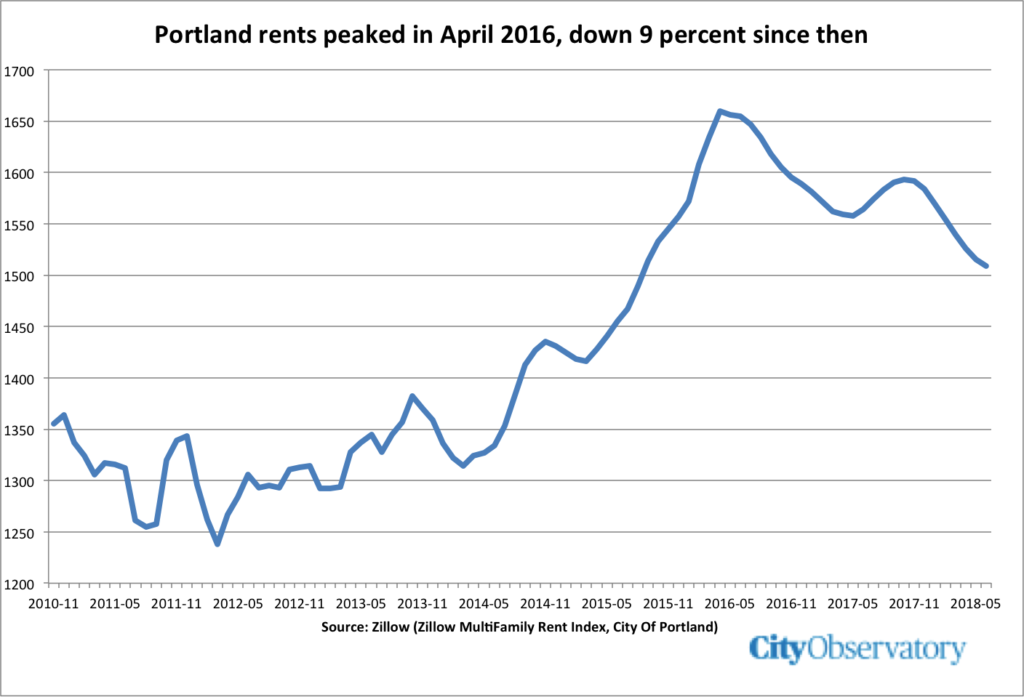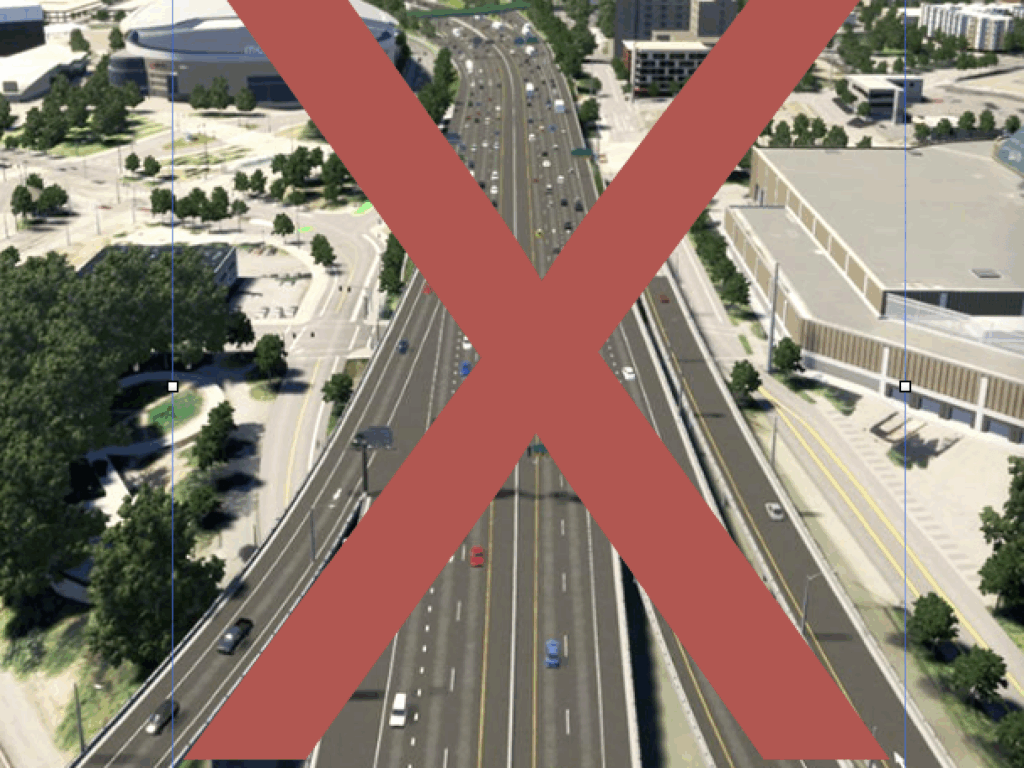Zillows data shows Portland rents have dropped 3.5 percent in the past year
A couple of weeks ago, we published the latest data from ApartmentList.com on the decline in rents in the Portland metropolitan area. Their benchmark series for one bedroom apartments showed a year-over-year decline of 3 percent in Portland.
While we have a high regard for ApartmentList.com’s methodology (unlike some other sources), it’s always useful to look at a wide range of indicators data to verify what’s happening in the market. Accordingly, we’ve taken a look at the Zillow Rent Index for multi-family housing for the City of Portland. Zillow tracks rents and home values across the nation, and produces monthly estimates of current market prices. Their methodology is specifically designed to avoid the composition effects that can bias other estimates of current rental rates. Here’s what their latest data show:
Year-over-year (from June 2017 to June 2018) apartment rents in the city of Portland, measured by the Zillow Rent Index declined 3.5 percent. That’s very close to ApartmentList.com’s estimate of a 3.1 percent decline for one-bedroom apartments.
According to Zillow’s historical time series, Portland apartment rents peaked in April 2016, and have declined a cumulative 9 percent since that time. The median rent peaked at about $1,660 but has since declined about $150 to $1,509. Zillow’s data confirms that Portland experienced double- digit rent increases in 2016, but the decline since then is consistent with economic theory (a growing supply of new apartments has blunted rent increases) and our observations (a flowering of “For Rent” signs in Portland neighborhoods).
If you really care about housing affordability, the Zillow data (and the remarkably similar ApartmentList.com data) are what you ought to be paying attention to: they show the rents Portlanders are paying in the current marketplace. These two independent data sources show that Portland’s housing is becoming more affordable. As we’ve explained at City Observatory, the declines we’re now seeing have a lot to do with the supply of new apartments finally starting to catch up with demand. If we want to see further improvement in housing affordability in Portland, we really ought to be looking for ways to encourage further increases in supply.


